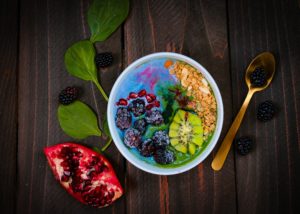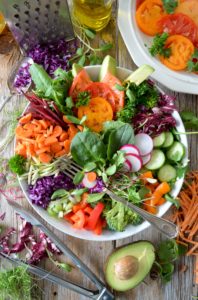Last week we discussed the basics of dehydration. We brought to readers’ attention that it is dire to seek medical attention while showing signs of dehydration. It effects the digestive system’s health, so take precautionary measures.
Why humans need sufficient water:
The body thrives a great deal with sufficient water, so it also declines rapidly with dehydration. A lack of water effects the outside of our bodies just as much as our internals. The skin is more vulnerable to skin disorders and wrinkling when dehydrated.
The Centers for Disease Control and Prevention, the CDC, carried out a study. Out of 3,397 adults, seven percent of the people reported no daily consumption of drinking water. Thirty-six percent reported drinking only one to three cups daily.
Getting a little better, thirty-five percent of the adults reported drinking four to seven cups of drinking water daily. Only twenty-two percent of the adults reported drinking eight or more cups of water daily. Dehydration causes fatigue and many worse symptoms, so learn how to stay hydrated.
Make hydration convenient:
Keep in mind, fluids can be retained through other drinks and foods. However, water is the best option because it is natural, calorie-free, sugar-free, and calorie-free. A large percentage of the adults studied consumed far less water than necessary.
![]() The catch is, drinking other fluids while not consuming drinking water means the adults were drinking other beverages. These other beverages were likely to contain refined sugars, dyes, caffeine, or even alcohol. Meanwhile, all of the above characteristics are not helpful for hydration.
The catch is, drinking other fluids while not consuming drinking water means the adults were drinking other beverages. These other beverages were likely to contain refined sugars, dyes, caffeine, or even alcohol. Meanwhile, all of the above characteristics are not helpful for hydration.
Take a good look at your cart before checking out at the grocery store. Research shows that calorically sweetened and zero calorie beverages raise a threat to your family’s health. The immediate satisfaction of flavor and sweetness draws youngsters and adults alike in for a treat. Otherwise, naturally fruit flavored water could be at arm’s reach.
Stocking up on natural drinks is important, but veer away from tea or coffee drinks as they dehydrate the body. Opt for naturally fruit infused waters or make them on your own. Use an empty tea loos leaf tea infuser.
Place washed and cut organic fruit into the tea infuser. Put the infuser into the desired amount of water. Sweeten the infused water with stevia leaf sweeteners if you need a sweet fix. Alternatively, use naturally sweet fruits such as clementines, strawberries, or cherries to give your water flavor dimension.
Eat hydrating foods for digestive health:
 According to the Institute of Medicine, about one-fifth of water consumption comes from foods we eat. What has potassium and is made of ninety-five percent water? Cucumbers are both and contain fisetin, an anti-inflammatory substance which promotes brain health.
According to the Institute of Medicine, about one-fifth of water consumption comes from foods we eat. What has potassium and is made of ninety-five percent water? Cucumbers are both and contain fisetin, an anti-inflammatory substance which promotes brain health.
Zucchini is the new wonder ingredient. It is the most popular alternative to traditional pasta in spaghetti nowadays. It too is ninety-five percent water making it a hydrating vegetable. Zucchini is a versatile vegetable capable of being a cooking and baking ingredient.
To get vitamin A, B6, and C plus antioxidants, buy or grow a large watermelon for the upcoming spring and summer months. Watermelons are ninety-two percent water but pack in the sweetness. It is a pleasant fruit that can be used in water infusion, popsicles, and mock-tails.
Toss in carrots, celery, and radishes to any salad for added water consumption. Kiwis are hidden gems. They pack close to the same amount of potassium of any banana. But these green, fuzzy fruits are packing serious flavor and zing.

Kiwis are low glycemic index which means they will not spike your blood sugar levels. This provides a longer release of energy. Providing your body with low glycemic and hydrating foods is a present to the human body. Try a smoothie bowl someday for a naturally hydrating meal.
Choose strawberries over blueberries for hydrating sweet treats. Strawberries are ninety-two percent water making it the most hydrating berries. Whatever you choose, we hope you shop for more hydrating foods for a healthier digestive system.
How much water should you drink:
There is no agreed on amount of water that should be consumed daily. Gastroenterologists share a healthy fluid intake for men and women though. These recommended amounts depend on each individuals activity, health conditions, and environment.
Men should drink one hundred twenty-five ounces of water a day. Women should drink at least ninety-one ounces of water a day. Eighty percent of this water should come from drinking water or other healthy beverages. The other amount can come from water enriched foods.
Men, aim to drink thirteen cups of fluids. While women are recommended to drink at least nine cups of hydrating fluids. If you suffer from digestive health issues, consider drinking far more water than mentioned before. Vomiting and diarrhea substantially increase the desired amount of water consumption.
Next week, we would like to continue the discussion of dehydration. We will venture into how staying hydrated greatly benefits your health and overall quality of life. Thank you for stopping by, and we will see you next week!
Staff Writer
